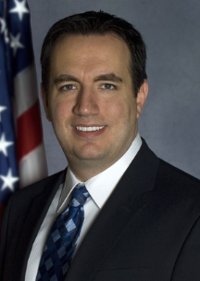
Rep. Frank Burns
HARRISBURG - Pennsylvania is on the verge of passing a law that will give lawyers a new tool to sue companies accused of defrauding the State, though critics argue it is unnecessary and will jeopardize access to health care.
The state House of Representatives overwhelmingly approved HB 1697 last week. It creates the Pennsylvania version of a federal law already in place that allows whistleblowers to file suit on behalf of governments - the False Claims Act.
It is commonly used to target health care companies, often over prices charged to government programs like Medicaid. The federal law even allows whistleblowers to file their cases on behalf of states.
For example, a recent $67.5 million settlement in a Philadelphia Zantac case provides $5.6 million to states, even though all involved chose not to join the litigation. Whistleblower plaintiffs get up to 30% of the recovery in these cases but sometimes fail to win anything because their cases are weak or they fail to meet the definition of a “whistleblower.”
"The False Claims Act encourages frivolous lawsuits that can result in high legal costs for defendants," the Hospital and Healthsystem Association of Pennsylvania says.
"The burden of proof is very low, leaving the door wide open for unnecessary and expensive legal costs for actions like honest billing mistakes."
HAP says the bill would put rural hospitals in particular danger because they face greater financial challenges - "Many rural hospitals may be one frivolous lawsuit away from having to close."
Attorneys at Reed Smith worry how the law will affect tax issues and whether it will "open the potential for abuse" by whistleblowers. But the bill's sponsor, Rep. Frank Burns, touts its ability to sniff out fraud and empower the Attorney General's Office to take companies to civil court.
The AG's office already has a division that handles criminal cases of Medicaid fraud.
"Private citizens should not be afraid to call out misused funds, and my legislation provides them with a deserved layer of protection," Burns said.
The District of Columbia and 29 states have their own versions of the False Claims Act, and Burns says Pennsylvania is the largest without one. Though only Democrats are sponsors, he has support from the other side of the aisle.
Thirty-four of the 101 Republicans in the House voted for the bill, which passed 136-67. Every Democrat voted for it, and the GOP has a 27-23 majority in the Senate, which will now consider the bill.
Pennsylvania's federal courts are already a destination for whistleblower lawyers who take their chunk from the recovery. Close to 400 of these cases have been filed in those courts since 2010.
Last year, the University of Pittsburgh Medical Center paid $38 million to settle an FCA case brought by clinicians there who said the hospital billed Medicare for unnecessary or overly complex procedures.
CVS Caremark risked a bench trial in Philadelphia by not settling claims over pricing agreements in another case and now faces a nearly $300 million penalty. The federal FCA on which Pennsylvania's is modeled requires defendants to pay triple the amount of actual penalties plus other statutory damages.
The Pennsylvania Coalition for Civil Justice Reform says the big winner if the bill is passed will be trial lawyers who get a percentage of their client's recovery and will also have their fees reimbursed.
"Proponents of the FCA tout it as a tool to reduce fraud in the Medicaid program," PCCJR says.
"In reality it is a policy that will encourage more frivolous and profit-driven lawsuits, increasing caseloads and creating additional burdens on our civil justice system in the process, not to mention the fact that fraud does not have to be proven in order to recover."








